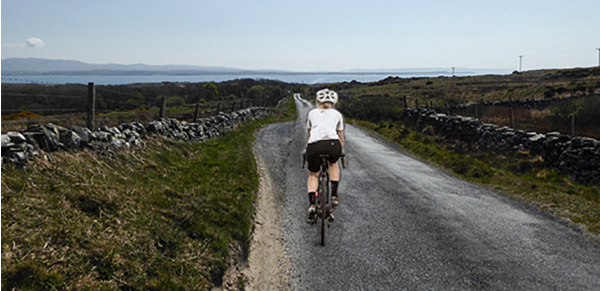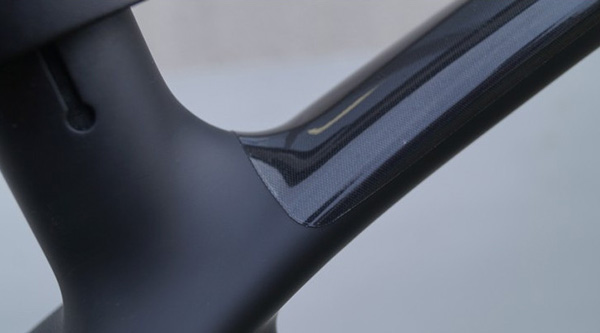
..........................................................................................................................................................................................................
leave no one behind

one of the major selling points of motor cars is the acceleration, the standard measurement of which seems to be the time taken to reach 60mph from a standing start. as one who prefers not to drive at all, and generally restricted to 40mph when i do, such numbers are, to all intents and purposes, irrelevant. and in this, even casual observation would tend to suggest i am not alone. as we wend our merry way around the island's single track roads, one viewing oncoming traffic, we are in the habit of dipping into the nearest passing place, principally on the assumption that the oncoming vehicle is very unlikely to so to do.
this is, as i have mentioned on several previous occasions, perfectly normal and, to be honest, hardly the most onerous task involved in the sunday ride. but bearing in mind the acceleration parameters mentioned above, it is of regular discussion as to why the driver of the oncoming vehicle seems blissfully unaware that his/her car possesses the ability to travel a tad faster than frequently seems to be the case.
yet, when the tables are turned, as a responsible peloton, we are inclined to speed up, preventing the vehicle which has pulled in, from waiting any longer than necessary. however, that presumes that the constitution of said peloton is of one accord, able to adhere to a singular acceleration guaranteeing that we all pass in one fell swoop. until recently, i would have admitted that to be the case, but, as we are well aware, there is nothing surer than change, brought about by circumstances that must surely affect every group ride at some time or other.
earlier this year, the sunday peloton acquired two new recruits, one of whom is very much the newbie in terms of riding, distance and gear-changing, and we now find ourselves at the extreme edge of our philosophy of leaving no-one behind. granted, this takes two distinct forms; either we ride at our normal pace and choose to make frequent stops, allowing the back-marker to catch up, or, as was the case this past weekend, leave one of the more experienced members to ride alongside, offeering conversation and regular encouragement.
this, it transpires, can really test the patience of those who are in the habit of riding a few kph faster than sunday's desultory average.
however, the choice to leave no-one behind, in our case at least, is not optional, no matter how trying the circumstances might be. for how would we fare in terms of sociability and recruitment, were we to invite others to join the happy throng, then ride off into the sunset, leaving them behind? islay is not the largest of areas in which to cycle, but for those less well acquainted with the countryside, particularly if they've been used to simply following along in the peloton, being left to their own devices could turn out to be a tad concerning, particularly in the face of inclement weather.
on previous sunday rides, i have attempted to discover whether the person in question has become sufficiently familiar with the route, that they could find their own way home, but to be honest, i'm still unsure if that is truly the case. i am aware that some of the slowness is curated by an apparent misunderstanding of which gear is most suitable for the terrain. i'm sure many cycle groups feature at least one rider who rolls along with the chain on the inner ring, but firmly in the smallest sprocket, struggling manfully and womanfully to turn an inordinately large gear. in the face of an atlantic headwind, that's a big ask.
i have also advised that it might be prudent to carry a snack in a back pocket in case of necessity; sunday's ride gradually slowed to a crawl due to a lack of stamina and the necessary carbohydrates to offset the latter. i'm pretty sure we've all been there at some time in our careers, and it behoves us well to remember that fact when despairing over the speed, choice of gear or inability to cover the distance displayed by someone else. everybody has to start somewhere, and generally, it is only by subjecting ourselves to such apparent iniquities, did we get where we are today.
leave no one behind.
monday 31 october 2022
 ..........................................................................................................................................................................................................
..........................................................................................................................................................................................................where's it coming from?

during 2020 and 2021, the cycle industry experienced an upturn in its fortunes, partly due to cycle shops being considered essential in the fight against covid, and partly because many of those still working were keen to avoid mass transit systems and used the bicycle as a means of daily transport. this meant that sales increased perhaps disproportionately to the values previously placed upon the bicycle. though many did and do use the bicycle as a means of commuting to and from work, there are arguably more who see it as tool for leisure purposes. no doubt, in a subsequent venn diagram, there would be a substantial intersection.
however, it was also well documented during those two years, that, for once in their lifetime, bicycles became particularly scarce, whereby customers purchased whatever was available, rather than specifically that which they desired. due to supply restrictions that continued well past the lifting of lockdown, that's a situation that is only beginning to return to some sense of normality even now.
many of the world's larger bike manufacturers have spent the past few decades investing in far-eastern production, meaning that output is not only dependent on the state of manufacturing in the likes of taiwan and mainland china, but also sea transport from the same locations. given that the pandemic originated on mainland china, it's not hard to see why those carefully cultivated supply chains were prone to immediate disruption. however, the upshot of the covid crisis may have been the catalyst for the european union's critical raw materials act, something that britain ought best to pay heed to, despite having exited the eu.
in fact, in a sense, britain may need to pay more attention to this than the current member states, given that, as a country, we really feature none of the raw materials required to maintain supplies of bicycles, whether analogue or electrical. the september state of the union speech by eu president ursula von der leyen, she described lithium and rare earth metals as soon likely to become more important than oil or gas. (it is ironic, therefore, that the eu has threatened to declare lithium salts as dangerous to human health.) it doesn't take a degree in rocket science to see the validity of her statement. if the world is intent on net-zero by mid century, and its current plan of action revolves around renewable energy and electric-based transport systems, those particular materials will achieve a greater level of importance than they possess even now.
notwithstanding my incomprehension of why the bicycle industry needs to transition to electricity, there's little doubt that it is already headlong down that particular rabbit-hole. and to sustain that particular strategy it's going to require increasing amounts of the materials required to manufacture batteries, few, if any of which are sourced from mainland europe. in the grand scheme of things, electric bicycles pale into insignificance in comparison with the drive to replace fossil fuel-based transport with electric vehicles, but the very fact that the bicycle industry has been asked to the table, indicates that it is now considered now to be a significant player in the electromobility industry.
i've no idea just what percentage the needs of the bicycle industry are in comparison to world demand; i'd tend to figure they're fairly small, but if the bicycle, analogue or digital, is being proposed as part of the solution to climate change, the industry's demands have to be recognised as every bit as necessary as those of other industries. and outside of the battery concerns, there's still aluminium, steel and carbon fibre, more of which will be required if the bicycle becomes of greater strategic importance as a future transport solution.
in respect of all the foregoing, and given the purported green credentials often applied to the bicycle, it behoves us, as cyclists, to look at the longevity of our own machinery. instead of following the pattern set by modern-day car owners, replacing your bicycle every three years or so could sensibly be viewed as a luxury we shouldn't afford, and calls into question the industry's apparent need to bring something new to the shop floor on an annual basis. for those in thrall to the electron, it is a salient fact that e-bike batteries will eventually need to be replaced sooner or later, setting different conditions than for those of us who pedal under our own steam.
in terms of the bicycle industry, it makes sense that it pools its resources, even in the face of internal competition, allowing for a stronger voice at the table to which it appears to have been invited. maybe, though in less dramatic fashion than announced at the start of the pandemic, the bicycle's day has truly arrived?
sunday 30 october 2022
 ..........................................................................................................................................................................................................
..........................................................................................................................................................................................................sense and sensibility

a cycling colleague of mine, despite having experienced trials and tribulations with dura-ace di2 on his road bike (he replaced it with dura-ace mechanical), has now outfitted his gravel bicycle with sram's wireless rear mech, which, of course, he is perfectly enitled to do. however, despite this latest membership of the electron group being made possible by a different marque, had it been me, i'd have been likely to apply the 'once bitten, twice shy' maxim. that, of course, while probably of little surprise to anyone, comes under my apprehension that electricity on a bicycle remains a solution looking for a problem.
similarly the implementation of hydraulic disc brakes (once again, my answering a question that nobody asked), though i know i'm far from being the only cynic in that region. i recently viewed the beginning of a youtube video where the australian vlogger's castigation of disc brakes on time-trial bikes made me look like the poster boy for braking technology.
i am well aware that the continuous development of technology has produced many a notable benefit for humankind, some of which, developed for a singular purpose, was subsequently discovered to have lateral benefits in other areas. teflon would be the first that comes to mind, a material that not only prevents the omelette from sticking to the frying pan, but forms the basis of gore-tex. who could have seen that coming?
however, though an undoubtedly simplistic observation, benevolent technology often results from attempts to solve a particular problem, one that has previously curtailed developments in a particular field of study or endeavour. consider the means by which jet propulsion engineers solved the problem of air intake to the engines on concorde, where it had need of being slowed to subsonic speeds. had that problem not been worked out, concorde would have remained a very expensive white elephant. (oh wait..)
but there are every bit as many solutions to problems that exist as far more trivial considerations. had shimano not bothered to electrify their gearchanging, literally nothing would have changed. and perhaps far more contentiously, had no-one ever thought of replacing steel with carbon fibre, we'd still be riding bicycles, which may or may not have been as fast as has become the norm, but the purpose(s) for which they're ridden would scarcely have altered. who amongst us doesn't gain as much pleasure from watching 'a sunday in hell' as they do from re-runs of last year's tour de france? and that despite those participating riding substantially different strains of bicycle.
for those of you who count yourselves as regular readers, none of the above will come as any surprise, and surely call into question the importance of my filling so many paragraphs with such common knowledge. but, as usual, there is a modest degree of common sense to my apparent madness.
on arriving home after a hard day at the grindstone, imagine the joy to be had on finding the latest copy of rouleur magazine: the design issue. and imagine how much greater was that joy on discovering that it contained a lengthy feature on tom ritchey, the man whose surname appears on the downtube of my road bike. several years ago, my friends at ritchey, simon and jeff, acceded to my request to submit an email interview to the great man, but rather than simply reply in similar fashion, he sent an audio file answering my questions.
impressive.
tom ritchey continues to champion the use of steel in his framesets, and rides an elderly steel frame of his own manufacture on gravel, pre-empting gianni vermeersch's victory in the inaugural world gravel championships, eventhough the latter was achieved on carbon fibre. the man is an incurable pragmatist, and when somebody that good, and who's been there, done that and currently wears the t-shirt, displays remarkably similar philosophies to those of your own, if nothing else, you begin to feel somewhat validated.
"today, the bike industry spends too much time trying to sell solutions to problems no one has."
go buy a copy of rouleur and read for yourself.
saturday 29 october 2022
 ..........................................................................................................................................................................................................
..........................................................................................................................................................................................................oh yes it does

scottish power renewables are embarking upon the planning of machairwind, a two gigawatt windfarm proposed to be sited between islay's north coast and the islands of oronsay and colonsay, the latter around a two hour ferry journey from islay. though in the very early stages (it's expected to be in operation by the early 2030s), dependent on wind turbine technology, machairwind will consist of between 100 and 140 turbines some 8km from islay.
as a result, a team from scottish power renewables visited jura on tuesday, had to make a conference call to colonsay on wednesday due to weather preventing sea-travel, and islay on thursday afternoon, informing those with an interest via a series of drop-in events. attending the islay version, i spoke to an spr representative who asked if i harboured any misgivings over their plans, and whether i thought others may do so? in point of fact, i rather like wind turbines; they always remind me of 'war of the worlds'.
however, in the grand scheme of things, whether any of us like wind turbines or not, the fact is, unless anyone can name a suitable alternative to renewable energy, whether generated by wind, tide, or solar, that would appear to be our future. as it is, i'm all in favour. and since islay has been identified as one of six scottish islands designated to become carbon neutral by 2024, the possibility that scottish power renewables might be able to tap a portion of that wind power and divert it to power our ever-increasing number of distilleries, makes the proposal even more attractive. according to better informed opinion than that of yours truly, unless something like the above actually happens, it is highly unlikely that islay will achieve net-zero within the timeframe. (distilleries use a colossal amount of energy to produce whisky.)
and during the conversation/discussion, not unnaturally we got round to transport issues: electric cars, e-bikes, walking and cycling. many of those attending the drop-in event had driven the short distance from bowmore village to the gaelic centre in which the event was being held. you may perceive my point on learning that the distance from the office to the centre is approximately 1.5km, a distance that i chose to walk in both directions. i could have cycled, but that would have involved returning home to collect my bicycle, so i opted, for expeditious reasons, to walk.
i am no spring chicken, so if i can do it, so could many other attendees. aside from replacing fossil fuels with renewables, on an individual level, we're all going to have to make changes to daily life. but adopting cycling as a means of transport is a lofty ideal, particularly amongst those who choose to drive relatively short distances. despite moans about fuel costs (and they're higher on islay than pretty much anywhere else you'd care to mention), those who drive still seem to do so, despite the possibility of saving money by using one of the alternatives outlined above.
but cycling, to isolate it from walking or public transport, confers benefits that are ancilliary to its role as a means of transport, but every bit as important. to encapsulate that in a few words, 'nothing's ever worse after a bike ride'.
and it's on that basis that nils amelinck has launched the not-for-profit rider resilience cc. thirty year-old nils was daignosed with incurable bowel cancer and originally told he had five years to live, at best. just over five years later, he's still here, albeit following several rounds of surgery and substantial amounts of radiotherapy and chemotherapy. and he attributes his almost miraculous tenacity to the healing powers of the bicycle, citing that, without it, he simply wouldn't still be here.
his stamina allows cycling to be one of the few activities that provide his turbulent life with some sense of normality. he has said that every time he gets out on his bicycle, he can temporarily escape from the 'ominous clouds overhead', as his mind is too preoccupied with the route ahead. his fostering of rider resilience cc is to help tell stories that highlight how the bicycle has allowed others to ride through times of hardship, as well as the raising of funds to offer monetary support to similar projects, and ultimately to get more folks on bikes and enjoy the joy of riding their bicycle.
because bicycles are more (much more) than just a means of transport.
friday 28 october 2022
 ..........................................................................................................................................................................................................
..........................................................................................................................................................................................................the wrong way round

i'd agree that it's probably right to call time on pointing the finger at bianchi for inventing the term 'hyperbike', something i've done for three days in a row, if memory serves correctly. because, if push comes to shove, i'm pretty sure they're the ones having the last laugh. though i don't have precise figures to hand, the general consensus seems to be that the price tag is slightly in excess of £11,000, a sum of money i (and many others) would find hard to justify spending on a bicycle that is somewhat sparing on the pragmatic front. always assuming, of course, that i had £11,000 in the first place.
that being said, there seems to be no shortage of 22 and 72 plate motor cars even in a small backwater in the hebrides, a fact that would tend to suggest that the cost of living crisis hasn't bitten as hard as we've been told. and despite rising fuel prices, i've seen little evidence that folks are leaving the car in the driveway and cycling, walking or taking public transport instead. however, despite the theory of trickle down politics having been thoroughly discredited, perhaps the worst effects of the crisis have yet to hit home.
the onset of the pandemic in 2020 brought many to the way of the saddle, both as a practical and eminently safer mode of transport. the resultant downturn in car use brought immediately noticeable benefits in terms of traffic congestion and inner city and urban pollution levels. many described this as the second coming of the bicycle, though i doubt there are many continuing such proclamations at present. the last throw of the covid dice had scarcely passed before those pollution levels had shown themselves to be dramatically on the increase, closely followed by traffic congestion, as the supposedly converted returned to their cars en-masse.
in the uk, bicycle shops, having been classified as essential services, reported serious difficulties in acquiring stock, their shop floors often appearing disturbingly bare, customers frequently buying anything available rather than the specific objects of their desire. oh how things have changed, but in a way that does nothing to encourage optimism amongst the already converted.
according to shimano in its first nine months report for 2022, demand for bicycles has remained above the pre-covid levels, but they pointed out that the european market had shown signs of cooling cycle sales, which, though remaining reasonably healthy, displayed factors that we may, or may not, have expected. sales of the sort of stuff that you and i would be likely to purchase were remarkably healthy, perhaps explaining why bianchi pressed ahead with their hyperbike. mid-range sales remained reasonably good, but sales at the budget entry level seemed to have suffered most.
now i daresay those details could be interpreted in more than a single manner; perhaps all those who had bought entry-level bikes at the beginning of the pandemic, were now completely in thrall with their purchases, so much so, that they'd moved up the ladder into the expensive stuff. or, more likely, fewer people are turning to the bicycle as a means of transport. assuming the latter to be true, we, and by we, i mean government, cycling uk, british cycling and folks like me, should be spending long periods examining where we went so horribly wrong.
though the pandemic was a period of two years i fervently hope never to witness again, it did initially offer the perfect opportunity for the bicycle to begin and remain in the ascendency, a situation that appears to have been squandered, for whatever reason. shimano's report, ironically, shows the chinese market to be strong across the board, though both the asian and south and central americas showed a declining interst in bicycles. the only market section that may be said to have bucked any of the above trends, is that of the e-bike.
that latter fact may speak volumes. those of us for whom wednesday eve chaingangs and sunday morning rides are a part of life, have apparently remained faithful to our chosen genre, while it may be that those who would normally have opted for entry-level, or mid-range bicycles, may have jumped ship in favour of electrons.
for the life of me, i cannot see why the e-bike is being so heavily promoted at the expense of analogue bikes, when in the quest for net-zero, the former are still dependent on electricity generation. when the latter is completely generated by renewable means, any opposition argument will likely evaporate, but surely it still makes more sense to adopt a means of transport that requires no external fuel, other than that consumed by its rider?
or am i missing something?
thursday 27 october 2022
 ..........................................................................................................................................................................................................
..........................................................................................................................................................................................................the good stuff

though i'll admit to cherry-picking the recent subjects on which i might wax lyrical, i find it almost comforting that only a matter of days later, a situation occurs that wholly underlines the vacuous nature of those subjects and several others that i let pass me by. in the very early days of thewashingmachinepost, a friend of mine aided my quandary as i was asked what the post was all about. struggling to encapsulate its apparent (and occasionally, real) eccentricity, he intervened by stating it to be a reflection of road cycling culture. i did not examine too closely, his definition of the word 'culture'.
thus, without becoming too narcissistic about matters, i have felt free to explore the nooks and crannies of the sport, the industry and all manner of auxiliary considerations. more than 25 years of almost daily dissertation has either opened my eyes to the realities of that which i think i observe, or made me a great deal more cynical; probably a bit of both. but as asserted above, occasional unforeseen circumstances can place matters in a different and occasionally better perspective.
if i may, as usual, take the long way round, recent ruminations have encountered bianchi's invention of the 'hyperbike', accompanied by ultimately spurious figures to prove their proof of concept. as mentioned at the time, if cycle sport, along with many sporting endeavours, can legitimately be classed as 'entertainment', can we really be assured that attempting to make racing bicycles a few milliseconds faster than the competition constitutes 'entertainment'? is it possible that the time, effort and cost involved in so doing could actually be pointed in a direction that might possibly have some 'real' benefit?
do not mistake me; i do not wish to come across as the 'party pooper' that i'm sure has already been recognised. were it not for technological developments, we'd still be reaching to the downtube to change gear. but were it not for technological developments, we'd still be using rim brakes and inner tubes - swings and roundabouts. perhaps what is required is some sort of self-censorship, where the industry's boffins are required to experience a cooling off period, where they can reflect upon the validity of that which they are about to foist upon an unsuspecting peloton.
as if to confirm my spurious theory, almost simultaneously, specialized released the latest version of their diverge, digging a larger hole for the gravel brigade, by augmenting their future shock headset suspension with an amended version at the rear, signified by a rather fragile extension extending from the back of the now re-designed top tube. again, as i believe i mentioned at the time, i was always under the impression that gravel riding was a marketed return to our roots, where we played ourselves off against the power of nature and its natural berms and tussocks of grass. what need have we for the vicissitudes of suspension?
i'm sure there were several of you criticising my criticisms, particularly since i have ridden neither the bianchi nor the specialized, simply expressing my luddite tendencies in a manner designed to pass me off as a qualified expert in such matters. but then comes the news that sram corporation's vice-president of marketing, david zimberoff, is to leave his post 27 years after founding the department of which he has been successfully in charge. f k day, co-founder of sram said that hiring zimberoff was "...one of the best decisions i've ever made."
the more perspicacious amongst you may have also recognised that f k day is not only co-founder of one of the top three component manufacturers in the world, but also the founder and chairman of world bicycle relief, thewashingmachinepost's much-favoured charity. and it is the latter that has encouraged mr zimberoff to throw off the shackles of corporate life to focus on a transportation research project for world bicycle relief. and, at the risk of coming across as holier-than-thou, that's where the real developments are taking place.
world bicycle relief's buffalo bikes cost a comfortingly realistic £120, a far cry from the £11,000 plus on the bianchi's price tag, or in excess of £7,000 for a bouncy specialized. for those prices, you could trade a bianchi oltre for 92 buffalo bikes, while a new diverge would garner another 63. if i might quote from world bicycle relief's website, "While most of the world's bicycles are lightweight, complex and made for recreation, we designed the Buffalo to serve the needs of people who travel long distances over rugged terrain with heavy cargo."
while we're contemplating the proposed benefits of easing the strain on a nearby gravel playground with the addition of secondary rear suspension on a 2023 specialized diverge, there are considerably less well off individuals in rural africa, overwhelmingly grateful for a heavy, bombproof, suspension-free, steel single-speed bicycle, enabling them not only to ease the burden of daily life, but quite literally, to survive, serve their communities and feed their families.
for this reason, david zimberoff's impending move should be roundly applauded. and were you thinking of purchasing either an oltre or diverge, now would be a good time to reconsider. i've published a donate link to world bicycle relief below.
donate to world bicycle relief
wednesday 26 october 2022
 ..........................................................................................................................................................................................................
..........................................................................................................................................................................................................cover up

as previously mentioned, i am not currently a car owner, having decided to ditch four wheels well over a decade ago, when my then motor car failed its mot test and promised to relieve me of a substantial amount of money to continue driving it. that was a choice that both mrs washingmachinepost and i made at the time, and one that i have not regretted for one minute. however, since the choice was made, i have endeavoured not to sweeten the pill by persuading others to become perhaps unwilling chauffeurs.
my son, who lives almost within shouting distance of the croft, owns both an estate car and a van (the latter for his work), and who is generous enough to frequently offer transport should i find it necessary. i cannot deny that there have been wet and windy sunday afternoons when i've had to retrieve a drumset from one of the nearby hostelries, following two evenings' worth of gigs, when loading them into a vehicle would have been a lot less strenuous and considerably drier. however, though i've never be idiotic enough to refuse a lift when he arrived outside said hostelry, i make it a point not to remind him that i was playing there in the first place.
therefore, when it comes time each year to play at the lagavulin islay jazz festival, frequently at a location well outwith walking distance, i have been in the habit of hiring a vehicle from a car hire in bridgend, five kilometres from home. 'tis a simple matter to ride my bicycle to bridgend, leave it in the hire garage (they're nice that way), and drive the vehicle back to bowmore to load up the drums. following the gig and unloading, it's simply a matter of reversing the process.
though i cannot say i go out of my way to pay attention to car adverts, whether in print or on television, occasionally it becomes all but unavoidable. during those involuntary moments, i have come across two notable aspects of the modern-day car. firstly, in print at least, the small wording at the bottom frequently pays heed to the vehicle's acceleration speed from zero to 60. i'm really not sure why that's a pertinent aspect, but doubtless my son would be able to enlighten me. but given that's the case, why is it that every time i stop in a passing place on gruinart flats for an oncoming motor car, you could time their acceleration speed with a calendar?
but the other part that has me slightly mystified, is the attention paid to the upholstery; its level of comfort, the expense of the fabric, its wear properties and how resistant it is to spillages. so why, then, did the likes of the van i hired for this year's jazz festival feature waterproof seat covers? and why do i notice that many of my friends and colleagues, several of whom own reasonably expensive motor cars, have done likewise? because i'm fairly sure that the colour and style of upholstery would have been the subject of debate leading up to the moment of purchase.
and it seems the latter is a state of affairs from which the humble bicycle is not immune, though admittedly it less ostentatious circumstances. and to make matters worse, it is a state of affairs to which i have been party for several years. i am referring to the option of covering parts of the frame with strips of clear, adhesive backed plastic.
shortly after acquiring my specialized cyclocross bicycle, with its carbon frame, i received a set of these protective plastic coverings for review, taking the opportunity to affix them to the carbon, if only to have the opportunity to return the bicycle in the pristine condition in which it arrived. as it transpired, the bicycle did not return home, and the clear plastic has remained. however, at least a part of my mystification concerns whether these protective coverings should remain in place on a permanent basis? for the mud and grit from which they were positioned to protect the frame, now splatters the stickers. why would i not choose simply to regularly wash the frame, rather than the stickers?
is not that the job of the clearcoat applied by the manufacturer?
were i to pluck up the courage to remove the coverings from the lower portion of the downtube, the back of the seat-tube and the right-hand chainstay, i cannot deny the specialized might once again look the way it did on removal from the oversized box. but surely i would need to replace the protective stickers to have it remain so? if that is indeed necessary, why does the manufacturer not spray the frame with a more protective clear coating, or factory fit clear protective strips in the first place? effectively, what i'm asking in my long-winded fashion is, do these protective strips actually serve any real purpose? and if they do; why?
i should point out that this is separate from the circular dots we all fit on each side of the headtube to fend off paint-wear from the cables. naturally enough, if your bicycle features internal cabling, i've just wasted about five minutes of your time.
sorry.
image: zefal
tuesday 25 october 2022
 ..........................................................................................................................................................................................................
..........................................................................................................................................................................................................